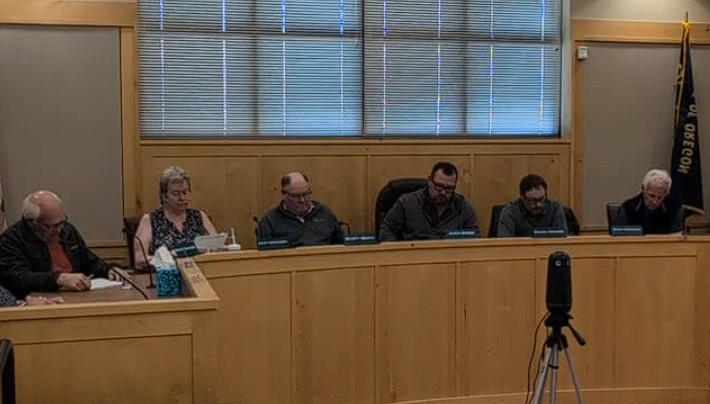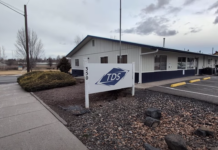
Prineville, Ore. – The Prineville City Council voted Thursday to postpone a highly anticipated public hearing on proposed expansions to the city’s Urban Growth Boundary (UGB), originally scheduled for April 22. The hearing will now take place on May 13, 2025, following the unanimous decision during a special meeting, with the exception of councilmember Jerry Brummer who was absent, reportedly for unconfirmed health reasons.
The special meeting came at the order of Mayor Jason Beebe in order for the council to entertain his request to delay the subsequent hearing as he cited a scheduling conflict that would prevent him from attending the April 22 session.
“This is a very important issue for the city of Prineville, and I believe the mayor should be there for a public hearing of this nature,” said Beebe. “We want to make sure all perspectives are heard, and council has adequate time to be fully educated on the issues to make informed decisions.”
The delay means the written public record will remain open through May 13, giving residents additional time to submit comments by email or mail.
The Prineville Review was present during Thursday’s proceedings and spoke with both Mayor Beebe and City Planning Director Josh Smith following the vote. Both officials acknowledged that the City could have done more to inform the public earlier in the process, especially given that the proposed UGB expansion had not been publicly discussed by the council in over a year.
Beebe explained that he had held a recent informal meeting with citizens and was also working to not only help get many of their questions answered, but many of his. He also provide context explaning that although the UGB expansion was being made as part of the process to bring in a biomass facility, the process was only one of several major steps needed before the potential of a biomass facility.
“The process is doing what it is supposed to. The council, back in 2019, directed staff to go through this process,” explained Beebe. “The process today just got the public notified about the UGB expansion. The UGB expansion was something we directed staff to look at to see if there was a need. That’s what has been going on in the background–they [county staff] came up with a potential need for it, so they came up with a potential process [for the UGB].”
Smith also explained that he and his staff were working to field many questions from concerned citizens and compile answers to help the public be more informed about the effort. He ultimately said that even with the UGB expansion, a biomass facility was far from a done deal and faced other local and state regulatory permitting, including from Oregon DEQ.
Many citizens have voiced concerns that the City and Council need to do a better job of keeping the public informed. Several individuals who have contacted the Prineville Review about the proposed biomass facility also expressed frustration that Council meetings are not being made fully accessible—an issue that has been raised repeatedly by community members in recent months.
Remote meeting options remain an important resource for residents in rural areas, individuals with disabilities, and elderly citizens, who make up a significant portion of Crook County’s population.
Beebe was also asked about those concerns over the City Council’s current remote attendance policy, which allows only staff and council members to access video during meetings, while limiting the public to audio-only participation by telephone.
Beebe acknowledged the concern, stating he had also been consulting with City staff.
“I don’t think there’s any good reason not to provide video for the public if they are remote–the technology is already here” he said, adding that he supports efforts to improve transparency and access—especially since full remote video access had been provided during the COVID-19 pandemic before the Oregon legislature expanded the law requiring remote attendance requirements. However, the law does only require audio as a minimum.
The Prineville Review previously questioned this practice months ago, noting that Oregon’s Public Meetings Law requires that members of the news media be provided remote access in the same manner afforded to others, meaning video is likely required if it is provided to others in attendance. At that time, Beebe also expressed concern and said he intended to look into the matter.
Further coverage in an upcoming issue of the Prineville Review will examine the community’s response to the project and dive into our full interviews wioth both Beebe and Smith, as well as a deeper look into the underlying controversy.
For more information on submitting public comment, visit cityofprineville.com or call 541-447-5627.
Mr. Alderman is an investigative journalist specializing in government transparency, non-profit accountability, consumer protection, and is a subject matter expert on Oregon’s public records and meetings laws. As a former U.S. Army Military Police Officer, he brings a disciplined investigative approach to his reporting that has frequently exposed ethics violations, financial mismanagement, and transparency failures by public officials and agencies.





